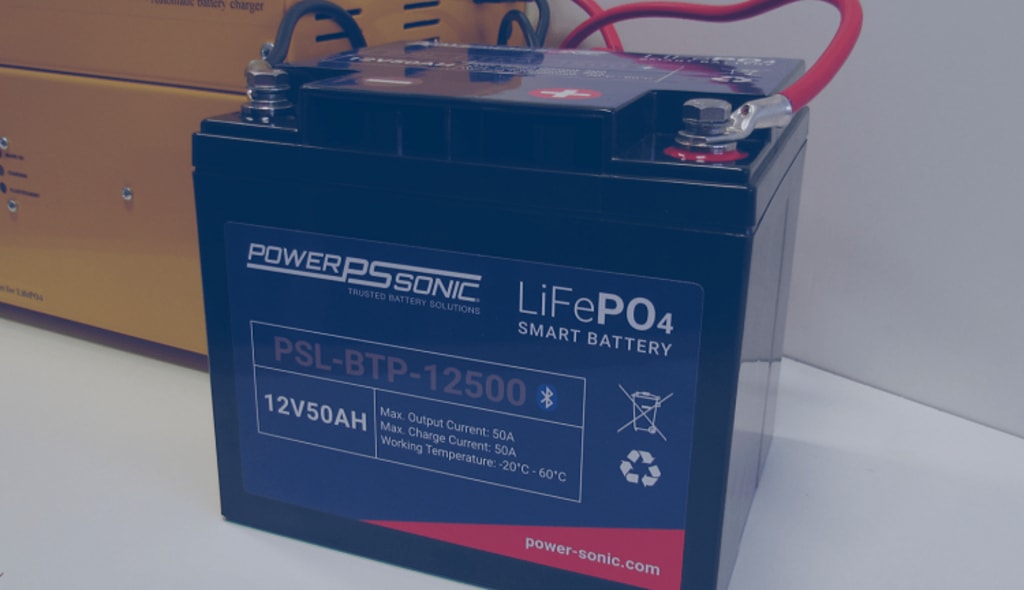A Guide To Understanding Lifepo4 Battery
The lithium iron phosphate battery, also known as the LFP battery, is a type of lithium-ion battery that uses Lithium Iron Phosphate (LiFePO4) as the cathode material

The lithium iron phosphate battery, also known as the LFP battery, is a type of lithium-ion battery that uses Lithium Iron Phosphate (LiFePO4) as the cathode material. This particular type of lithium ion battery has several advantages over other chemistries such as LiCoO2 or NMC811.
The most obvious advantage is its extended cycle life – it can be cycled 2000 times vs. around 500 for other chemistries according to some sources - which makes it an attractive choice for stationary energy storage applications like grid-scale energy storage and backup power systems. Other benefits include high thermal stability (making them less prone to overheating), low self-discharge rates (<5% per month vs 10%+ per month for many commercial Li Ion batteries), and relatively benign charging profiles meaning they are much more tolerant of abuse than other types of lithium ion cells.
What is the advantage of the LiFePO4 battery?
There are several advantages of using LiFePO4 batteries over traditional lithium-ion batteries. Some of the key benefits include:
1) Enhanced safety –LiFePO4 cells are generally considered much safer than traditional lithium-ion cells, especially in regard to thermal runaway events. This is due to the reduced risk of combustion and less aggressive chemistry associated with LiFePO4 battery technology.
2) Longer life cycle – LFP batteries have a longer lifespan than many other lithium-ion chemistries. They can typically last for up to 2000 charge cycles or more, compared to only 500 cycles for most conventional li-ions.
3) Greater temperature range –LFP cells can operate over a wider temperature range (-10°C ~ 60°C) whereas most conventional li-ions perform best within a narrower temperature band (0°C ~ 45°C). This makes them better suited for use in higher or lower ambient temperatures extremes.
4) Lower self-discharge rate - LFPs also boast one of the lowest rates of self-discharge amongst all rechargeable battery technologies (less than 2% per month), meaning they will retain their charge even if not used regularly
What are LiFePO4 batteries used for?
LiFePO4 batteries are used in a variety of applications, the most prominent being passenger cars. They're also common in buses, logistics vehicles and low-speed electric vehicles. LiFePO4 batteries offer high power density and fast charging capabilities, making them ideal for use in electrified transportation platforms.
LiFePO4 batteries are a type of lithium-ion battery that uses lithium iron phosphate as the cathode material. The anode is made from graphitic carbon and features a metallic backing to improve performance. LiFePO4 batteries offer many advantages over traditional lead-acid and nickel-metal hydride (NiMH) batteries, including high power density, fast charging capabilities, and long cycle life. They're also safe to operate and environmentally friendly.
Due to their superior performance characteristics, LiFePO4 batteries are becoming increasingly popular in passenger cars, buses, logistics vehicles, and other electrified transportation platforms. Many major automakers now offer models with LiFePO4 battery packs as standard or optional equipment.
What type of battery is LiFePO4?
Lithium iron phosphate battery or LFP battery is a type of lithium-ion battery using lithium iron phosphate as the cathode material and a graphitic carbon electrode with a metallic backing as the anode. The key advantage of this chemistry is high cycle life – around 2000 full charge/discharge cycles vs. 400 for most commercial li-ion cells.
In addition to being used in electric vehicles, such LiFePO4 batteries have also begun finding their way into home energy storage systems thanks to their long lifetime, good safety record and relatively low cost.
How long do LiFePO4 batteries last?
It depends on a number of factors, including the manufacturer's guidelines, how the battery is used and stored, and even climatic conditions. However, in general, LiFePO4 batteries have an approximate life expectancy of 5-7 years.
This relatively long lifespan makes them a popular choice for applications where reliability and longevity are important considerations. For instance, they are often chosen for use in electric vehicles due to their high power density and excellent thermal stability. Additionally, since they can last so many years with minimal degradation, LiFePO4 batteries can be seen as a more environmentally friendly option than some other types of rechargeable batteries which might need to be replaced more frequently.
Do LiFePO4 batteries explode?
Do lithium iron phosphate batteries explode? The answer is no. Lithium ion polymer (Li-ion) and lithium ion cobalt oxide (LiCoO2) are the two most common types of battery chemistries used in portable devices today. Both have a propensity to experience thermal runaway if they are damaged or mistreated, but LiFePO4 cells do not pose the same risk because they contain far less energy density than other li-on variants.
It's important to remember that any battery can be dangerous if it is mishandled or abused, so always take care when working with them and consult your device's user manual for specific safety instructions. But as long as you exercise caution and follow the proper handling procedures, there is no reason why you should ever fear using a lithium iron phosphate battery.






Comments
There are no comments for this story
Be the first to respond and start the conversation.